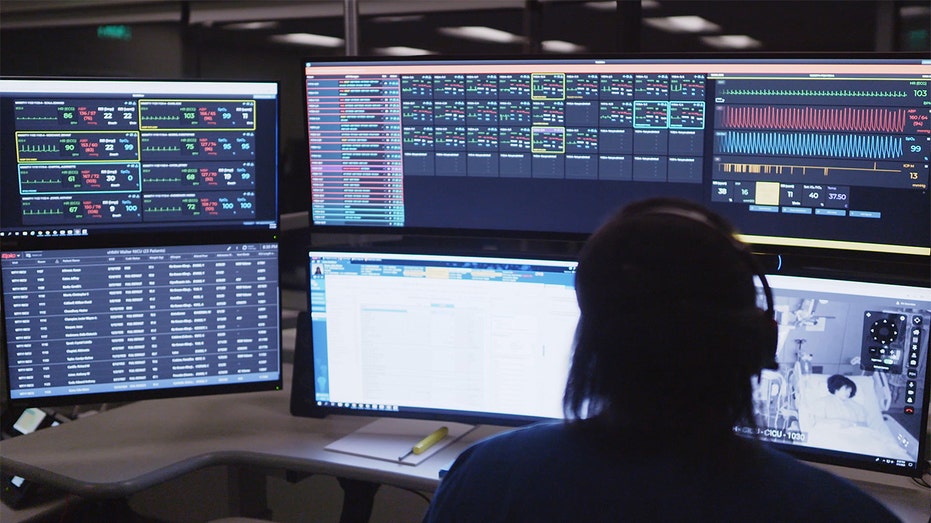Are two monitors better than one? Here’s what you need to know
Once you’ve experienced the joys of working with one external monitor, you might reasonably wonder about life with even more. The Fixer has a few recommendations.
Q: I’ve been using my laptop and an external monitor, but I want more workspace. Should I get a bigger display or a second?
A: Why not both? If you like having two screens, just wait until you try life with three. So much room for activities!
Before getting started, make sure your laptop software can support extra displays. Most new laptops have no trouble working in conjunction with one external monitor. And most PCs can support a second one, said Ebrahim Zmehrir, founder of EZ Quest. Many Apple computers, however, don’t have this power.

Businessman working on his laptop and looking at a desktop computer monitor.
Mr. Zmehrir’s company specializes in a solution for frustrated Apple fans: USB-C hubs. These allow you to bypass your computer’s software limitations and add more displays. One of the company’s multiport hub adapters, like the catchily named X40214 ($170) would let me connect up to three external displays to my 2020 Apple MacBook Air (or any Mac with M1 or M2 chips). Connecting extra displays might make your computer run a bit slowly, but isn’t risky otherwise.
TECH STOCKS HEADED FOR ‘BLOODBATH’ IN 2023, MORE ‘JOB THREATS’ EXPECTED

high angle view rear view senior chinese man with hair stubble working at home with stock exchange market multiple computer monitor monitoring market trend (iStock / iStock)
MICROSOFT STOCK EN ROUTE TO WORST DAILY DROP IN WEEKS
To really get into the weeds, these hubs function with the help of free software drivers that let your computer output information to multiple displays as if they were a single, continuous display. The X40214 uses drivers from a company called Silicon Motion, but the Dell hub I’ve used for years ($190) functions with drivers from a company called DisplayLink. Whatever hub you opt for, these programs offer the only way to get around the built-in output limitations of your computers. "I don’t want to say it," Mr. Zmehrir said," but [they] basically cheat the system."

With Medical Informatics Corp.'s Sickbay™ platform, healthcare providers at Houston Methodist Hospital can monitor multiple patients in real-time.
What monitor to get? I would opt for one like the Philips Brilliance 279P1 ($400), which can support 4K resolution and has a 27-inch screen. You could save money by buying a monitor with lower resolution, but I think the 279PI is in the sweet spot for most people. Sized appropriately for the average desk, it is also future-proof, since most laptops are unlikely to support higher-resolution monitors for some time.
| Ticker | Security | Last | Change | Change % |
|---|---|---|---|---|
| AAPL | APPLE INC. | 278.12 | +2.21 | +0.80% |
| DELL | DELL TECHNOLOGIES INC. | 121.05 | +5.66 | +4.91% |
| PHG | KONINKLIJKE PHILIPS NV | 29.45 | +0.58 | +2.03% |
GET FOX BUSINESS ON THE GO BY CLICKING HERE
With your new monitor, you can adopt my favored setup. My primary monitor is flanked by my laptop on the left—propped up with a stand I received from a previous employer—and another monitor on the right. That tertiary monitor is currently rotated vertically. I first saw this move on the desk of my aunt, who works in cybersecurity, but I don’t think you need to know Python to pull it off.




















